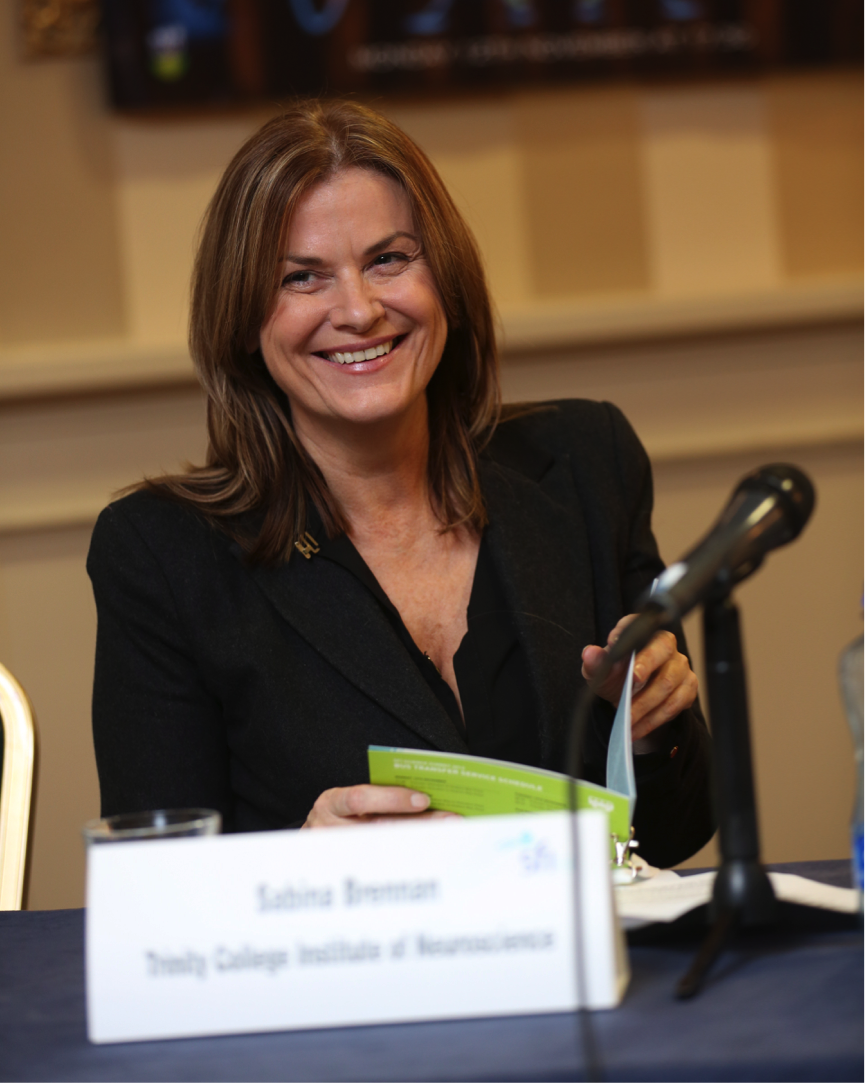Severity: Warning
Message: session_start(): Failed to initialize storage module: user (path: /var/www/session)
Filename: Session/Session.php
Line Number: 143
 Sabina Brennan Creator of Hello Brain
Sabina Brennan Creator of Hello Brain
How did you get into brain research?
“I studied psychology in university as a mature student, and in my final year I got a scholarship to do my PhD in Trinity, which was about cognitive ageing.
My PHD research focused on trying to understand the factors that influence why people’s brains age differently, and I really enjoyed working with the people who were taking part in the studies, hearing their stories.
I guess thats when I got bitten by the cognitive ageing/brain health bug. I think it is the most exciting, fascinating area of research, to look at what happens to the brain with age.”
What do you work on?
“The common theme across my work is an interest in what modifiable lifestyle factors affect how are brain functions as we age, and how we can make changes to improve brain health.
We are styuding memory function and lifestyle factors in 1000 adults aged over 50 and we plan to follow these indivduals over time to see whether any patterns emerge. We are also interested in the impact of more specific factors that are open to modification such as social engagement, age related hearing loss and the stress that can be associated with caregiving. All of these factors have been correlated with poorer cognitive function and I am interested in increasing our understanding of this relationship with a view to developing interventions or awareness programes like the Mind your Hearing campaign that aims to encourage people to get their hearing tested.
Because these factors are modifiable, it gives us an opportunity to help people improve their cognitive ageing. That’s why I am Principal Investigator on the Hello Brain project and Freedem Films, which aim to address people's fears about memory loss and offer practical advice on how they can protect their brain health.
I carry out these studies as a Principal Investigator in the Trinity College Institute of Neuroscience and as Director of the Neuro-Enhancement for Independent Lives Dementia Research Programme.”
Have you changed your lifestyle based on what research is showing about brain health?
“Learning more about how exercise and a healthy diet can affect brain health has made me more aware, yes. Also I am now very glad that I gave up smoking in my thirties – we now know that stopping smoking can not only help your lungs, but your brain too.”
What tips would you give to others to help protect brain health?
“I think people should take on board the messages from Hello Brain – that physical social and mental activity help to protect brain function as you age.
But probably a big thing for many people to tackle is stress – learning to avoid and manage stress can really help protect your brain as well as many other organs in your body. So the next time something or someone is annoying you, as yourself is this worth damaging my brain?
I would also encourage people to mind the language that they use about brain function. Research shows that the words we use can really affect our attitudes and even our brain performance. So if you suddenly can’t remember someone’s name or where you put your keys, rather than calling that lapse of attention a ‘senior moment’ just stop and say ‘it will come to me’. I think that would create a more positive mindset.”
Finally I would encourage people to smile more. I recomend 5 smiles a day and make sure to share one of those smiles to spead happiness and brain health.
If you had a magic wand and you could make something happen in the next five years, what would that be?
“I would like to see the general population become more aware and more pro-active about their own brain health. For that we need both public health approaches but also people being more involved in managing their own health.
If you think about how dental habits have changed in just one or two generations – now children are encouraged to protect their teeth because they expect to have a healthy set for life. I would like to see a similar mindset from youth for protecting the brain.”
www.sabinabrennan.ie
Share this page: